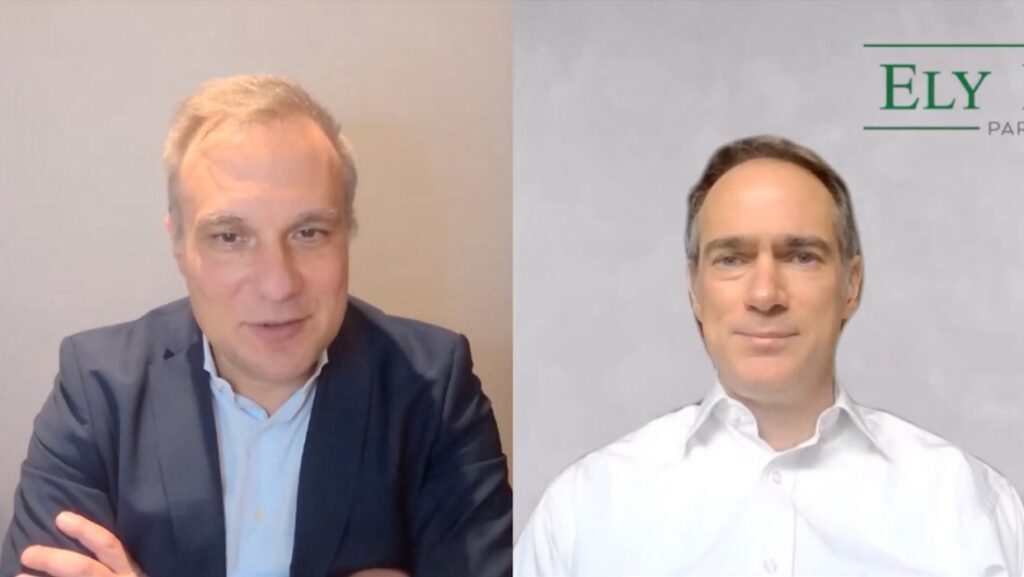Record Novo Banco deal supersizes Portuguese M&A volumes in 1H25 – Dealspeak EMEA
Dealmaking in Portugal was looking underwhelming in 1H25 until June’s record-breaking Novo Banco deal supersized volumes in the Iberian country.
France’s BPCE announced a takeover of Portugal’s fourth-largest bank in mid-June. The deal was worth EUR 6.4bn in equity terms and almost single-handedly improved the country’s M&A stats for the year.
In the year to date (YTD to 2 July), Portugal has recorded 68 deals worth EUR 7.2bn, the highest aggregate volume since YTD21, with EUR 12.3bn, according to Mergermarket data (based on Mergermarket criteria on disclosed deals).
The respectable result in 1H25 was largely led by the Novo Banco deal, which represents 89% of disclosed volumes in the YTD. Meanwhile, the number of deals fell 20% to 68 in YTD25 from YTD24 as global trade uncertainties hit M&A throughout Europe.
The Novo Banco-BPCE deal is the biggest deal for Portugal on Mergermarket record in terms of equity valuations. The next highest deal had an equity value of EUR 5.4bn (EUR 7.4bn including debt). It was the acquisition of telecom incumbent Portugal Telecom (PT Portugal) by French telco Altice from Oi in November 2014.
Portugal tends to produce just two or three large deals per year and the Novo Banco deal is very likely to be the deal of the year, according to Bernardo Abreu Mota, partner at local law firm CS’Associados.
The privatisation of TAP Air Portugal is likely to be another large deal to launch in 2H25, with dealmakers watching to see if the company can hold an equity valuation above EUR 1bn.
Slowdown eases
Apart from the Novo Banco deal, activity slowed in 1H25 due to global trade uncertainties and snap elections in May, which were won by the centre right.
There is now increasing interest from corporate investors from France, Germany and Spain, with appetite particularly acute in the renewable energy, manufacturing, agro-business, healthcare, real estate and tourism sectors, Mónica Moreira, managing partner at Deloitte Legal, said at Jornal Económico’s Advisory Summit last week.
There will be deals that will drag into the second half of the year, in habitual sectors such as renewables, hotels, tourism and technology, according to Manuel Santos Vítor, partner at local law firm Abreu Advogados.
M&A will also continue in the healthcare sector. One example is hospital operator Luz Saúde, where CVC, KKR and Macquarie are battling it out for a significant majority stake.
The administration of Luis Montenegro, the prime minister from the centre-right Democratic Alliance (AD in Portuguese), plans to bring back public private partnerships (PPPs) in the health sector. This was a big “no, no” for the previous government, Vítor said. PPPs are important for private players already operating in the market and potential new ones that may enter the market, he said.
The energy sector will continue to be active, according to CS’ Mota, who pointed to the deal announced in April where Iberis Capital acquired Dourogas’ vehicular natural gas business as an example of the activity.
There has also been a certain amount of activity in infrastructure and related services, Vítor said. For example, one deal to be announced soon will be similar to one last year where Henko Partners acquired a controlling stake in Quadrante, an engineering and consultancy company, he said.
Another one to look out for is the sale process of Ardian’s Portugal-based food ingredients company Frulact.
While the country has a good pipeline of potential targets, deals are taking longer than before, Deloitte’s Moreira said.
One reason for this is Portugal’s regulatory burden, Stephan de Moraes, president of the Portuguese Private Equity Association (APCRI), said. He is also co-founder and Managing General Partner at Indico Capital Partners.
There are deals that don’t get done, or take much longer, because Portugal translates European Union (EU) policy recommendations into local law with strict implementation, Moraes said. “This is not a good image for Portugal”.
PEs in focus
Even so, the Iberian country will continue to be a hive of activity in smaller Portuguese private equity (PE)-led deals, CS’ Mota said.
Local PEs are being encouraged by the government to deploy funds in small and medium-sized enterprises (SMEs).
“PEs have a lot of dry powder and we see a lot of activity and new investments, though they are having a bit of difficulty with their exits,” according to Abreu’s Vítor. “They are holding to their assets for a bit longer, hoping for better opportunities,” he said.
There were only two sponsor-led exits this year, led by the Novo Banco deal, which was an exit for Lone Star. As a result of the giant ticket size of this deal, the YTD exits score has already toppled 2024’s full year deal volume of the EUR 720m across 12 deals.
Meanwhile, 1H25 buyouts recorded seven deals worth EUR 29.5m compared to EUR 100m across eight deals for 1H24.
The “stigma” around PEs investing in family-owned companies has passed, and owners are realising that is important to be a small part of a larger group, Jorge Cardoso, CEO of Caixa BI, said at the Advisory Summit.
Meanwhile, some PEs and venture capital (VC) firms are making funds available for their portfolio companies to make acquisitions abroad, according to APCRI’s Moraes.
The mood among dealmakers in Lisbon and Porto looks positive as 2H25 gets underway.












